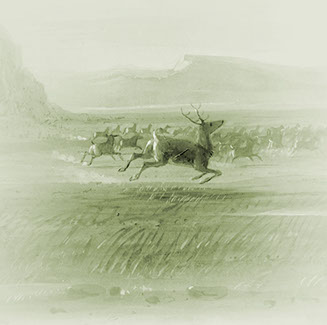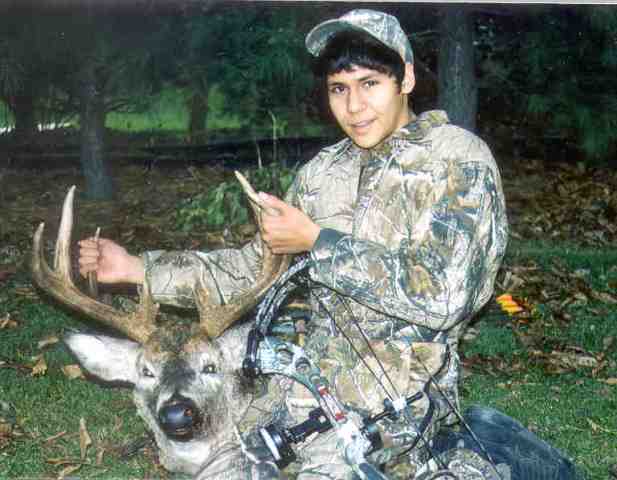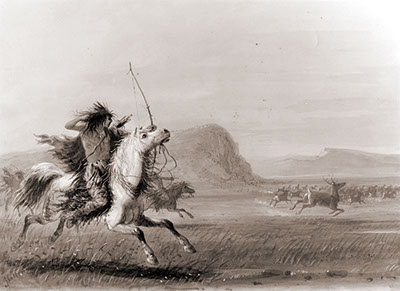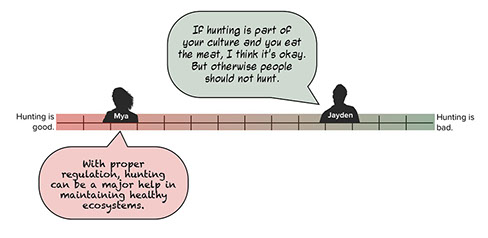SciGen Teacher Dashboard
Unit L1
Populations in Balance
 Writing: To Hunt or Not?
Writing: To Hunt or Not?
Duration: Approximately 50 minutes
Students explore positions on a spectrum of opinions about hunting.
LEARNING OBJECTIVES
Students consider the debate over hunting as a way of dealing with the overpopulation of deer in the United States.
Students analyze and interpret data to provide evidence for the effects of resource availability on organisms and populations of organisms in an ecosystem.
Students construct an explanation that predicts patterns of interactions among organisms across multiple ecosystems, especially competitive, predatory, and mutually beneficial interactions.
Students construct an argument supported by empirical evidence that changes to physical or biological components of an ecosystem affect populations.
Teacher Tune-ups
Teaching Notes
ACTIVITY OVERVIEW
- Consider hunting in context (5 minutes)
- Read a position overview (20 minutes)
- Discuss the range of positions (5 minutes)
- Writing (20 minutes)
Consider hunting in context (5 minutes)
Paraphrase:
Today we are going to consider multiple points of view related to hunting. Obviously, these are two very different points of view on the issue of hunting!
Display and discuss the late 19th-century image of Native American hunting elk.
Students may not understand the word "barbaric" but they may recognize the word "barbarian."
Credit: Watercolor image by Alfred Jacob Miller "Hunting Elk" (1858–1860). Courtesy of Walters Art Museum.
Read a position overview (20 minutes)
Paraphrase:
Now we are going to consider some information about deer hunting in the United States.
Display and discuss slides.
Read the passage aloud to the class, focusing on the focus words used.
- native
- population
- interdependence
- disturbance
- recovery
- consumer
- producer
- predator
- prey
Photo credit: Midewin National Tallgrass Prairie Nature Viewing. U.S. Forest Service of the USDA.
Hunting—sport, tradition or barbarism?
 A century ago, the deer population was endangered due to the environmental disturbances brought on by the development of cities and towns. In recent years, however, the deer population has increased dramatically. In fact, most native deer species in the United States have recovered.
A century ago, the deer population was endangered due to the environmental disturbances brought on by the development of cities and towns. In recent years, however, the deer population has increased dramatically. In fact, most native deer species in the United States have recovered.
Hunting advocates say that the recovery of the deer population is partly due to all the money that hunters pay in licenses and fees to be able to hunt. This money goes to local governments and is used to create safe habitats for native animals, like deer, to thrive.
Deer overpopulation in some areas can cause problems for humans who live in or near their habitat. Deer collisions with cars can cause serious injury. Deer can damage gardens and crops. Hunters argue that hunting helps with these problems by reducing the number of deer to a natural level. They say that if you care about helping native species, you should accept the role that hunting can play in their survival.
Other people believe that it is unnatural for humans to hunt at all. They point out that when a tiger preys on a wild boar in nature, it does not need a shotgun. They say that the argument that it is natural for humans to hunt makes no sense at all. Still others think that hunting is moral only if you consume the animal that you kill.
Discuss the range of positions (5 minutes)
Display and discuss slide.
Paraphrase:
Here is a spectrum that shows simplified positions at each end. Most people in the U.S. would take a position somewhere between the two extremes. Jayden and Mya are two seventh graders who found their place on the spectrum by thinking carefully about the issue.
Look at the positions held by Jayden and Mya. What's your own place on this spectrum?
Writing (20 minutes)
Paraphrase:
Now let's discuss a few questions in a small group before writing down our ideas.
Encourage students to use an authoritative stance backed up by evidence to support a claim. Remind them to use the focus words in their summary.
Write about your position
Discuss the issue with your neighbors, then write your position as Mya and Jayden have done.
Why do you hold the position that you hold?
What kinds of evidence or arguments might move you in one direction or the other?
Use the focus words; they can help you make a better argument.
native • population • interdependence • disturbance • recovery
consumer • producer • predator • prey
BETA Version - Please send comments and corrections to info@serpinstitute.org

